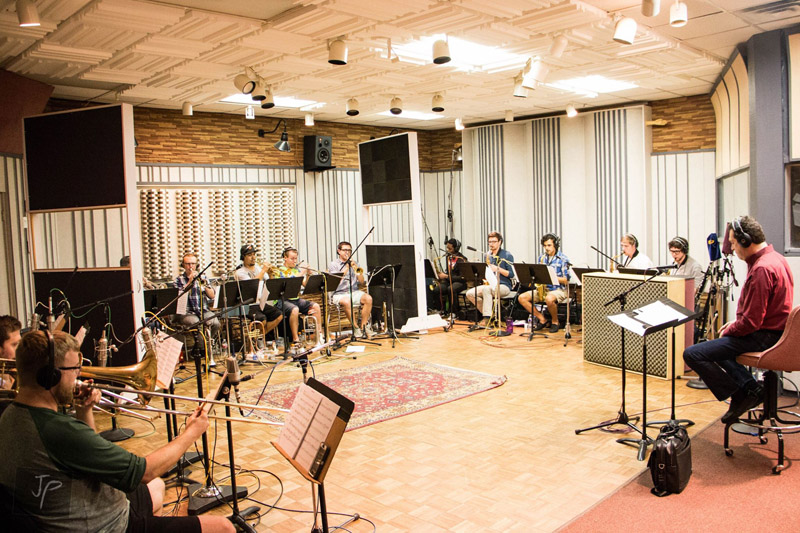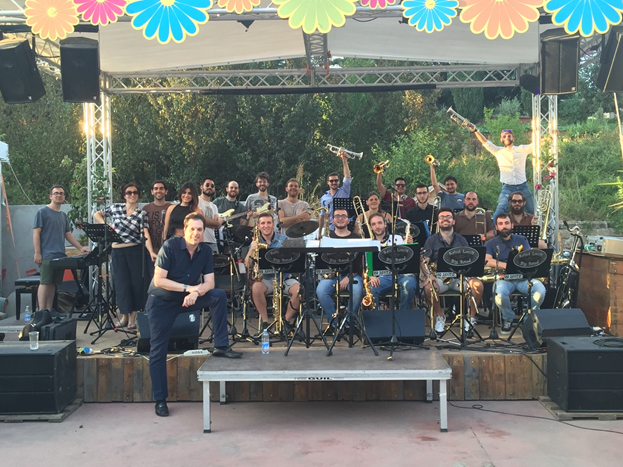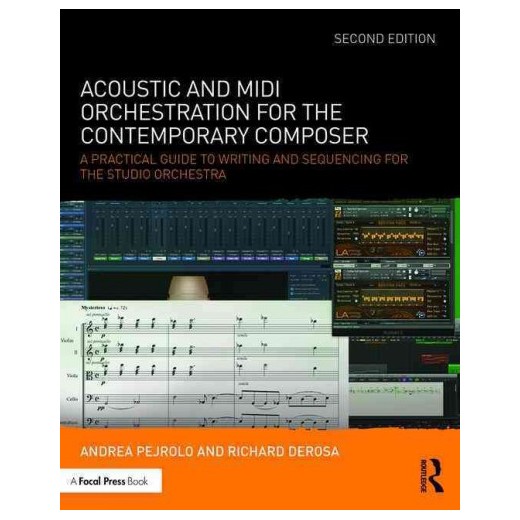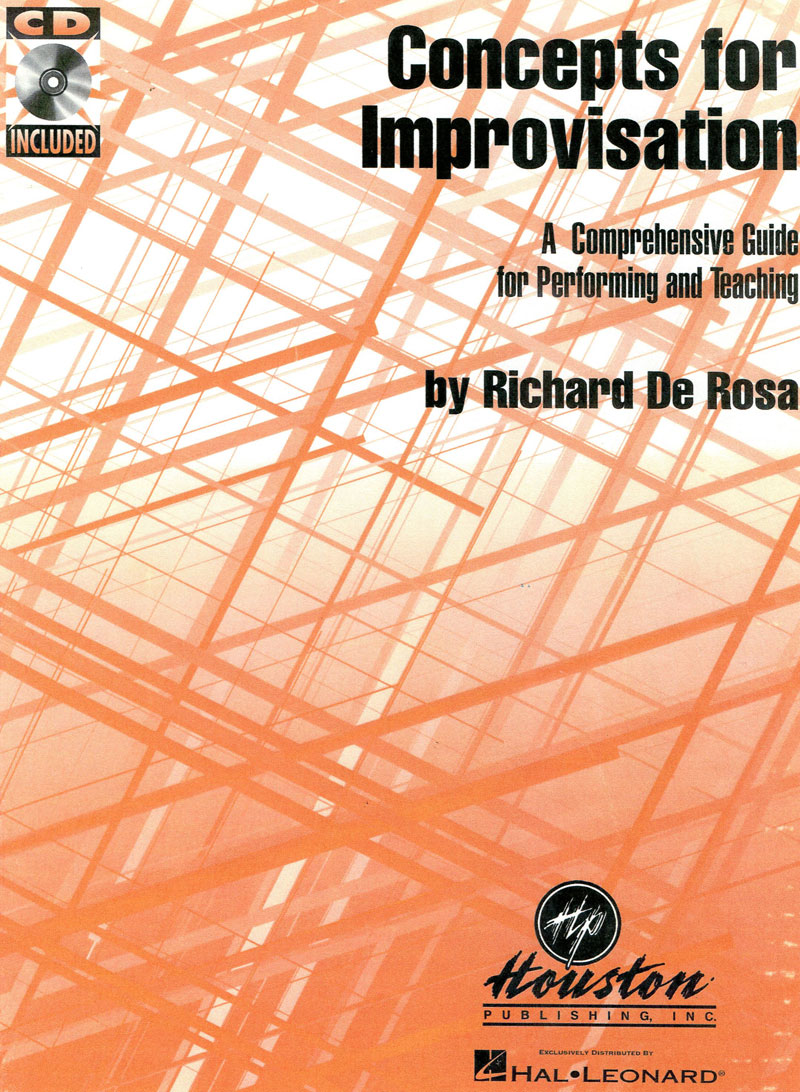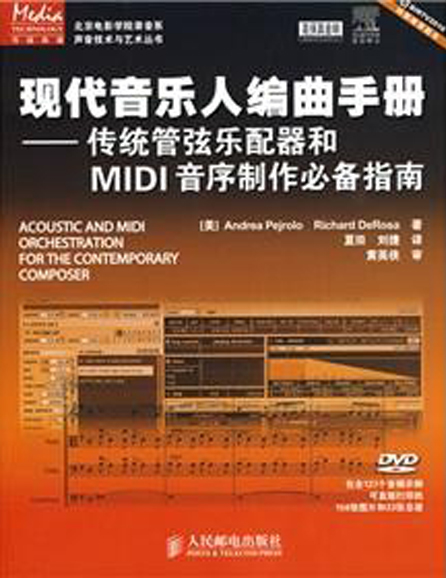Educator
Richard DeRosa is currently a tenured full professor at the University of North Texas where he has been Director of Jazz Composition and Arranging since 2010. Many of DeRosa’s students have received numerous prizes and awards for their work in addition to having recognition from Down Beat magazine, ASCAP, BMI, and JEN. In 2017 he received the Presidential Excellence Award at UNT.
DeRosa remains active as a Guest Artist Presenter Clinician and Adjudicator for schools, festivals and conferences both nationally and internationally including (among numerous others) Essentially Ellington Festival (Jazz at Lincoln Center), JEN (Jazz Educators Network), Texas Jazz Music Educators Association (TJMEA), AJV (American Jazz Venues), American Choral Directors Assoc., Northwest University, 36th Civebra (Brasilia, Brasil), Veneto Jazz (Italy), Stockholm Institute for Music Pedagogy (Sweden), Kunglica Musikhogskolan (Stockholm, Sweden), Edward Said Conservatory (Palestine), The Berlin Youth Jazz Orchestra (Germany), The St. Louis College of Music (Rome, Italy), and Melbourne Jazz (Australia).
.
Author
Acoustic and MIDI Orchestration for the Contemporary Composer: A Practical Guide to Writing and Sequencing for the Studio Orchestra is co-authored with Andrea Pejrolo and published by Focal Press – 2007 – (available on Amazon). An additional edition has been printed in Chinese (2010). An augmented 2nd edition that includes writing for traditional and commercial vocal ensembles was released in 2016.
This book is designed to unite the traditional music world with the 21st century genre of music production. It helps musicians with extensive experience in traditional orchestration to embrace the necessary aspect of computer music production while helping younger musicians who may possess the latest electronic gear but who have little or no experience of writing for actual musicians.
Concepts for Improvisation – a comprehensive guide for performing and teaching:
Houston Publishing, Inc. – distributed through Hal Leonard – 1997.
This book is designed for any musician who wishes to learn how to improvise and for teachers wanting to include improvisation as part of their curriculum. Although today’s jazz musicians are extremely accomplished improvisers, it is certainly possible for classical or pop musicians to learn this skill. This is why the word jazz is omitted from the title. For traditional music educators in particular, this book clearly provides a logical curriculum with plenty of original examples and effective exercises to help any teacher become more effective in teaching improvisation to their students.
Philosophies
Philosophy of Teaching – it is important to teach to the appropriate level of the student; essentially what the student needs, not what the teacher prefers to teach. Within that narrower scope, a balanced and greater context should also be established to foster a continual expansion of the learning process. Clear concepts are important for greater understanding. Ultimately it is best for the student to have a comprehensive knowledge and ability. Artistry and free expression are important but so are craft and discipline. Any creative process requires imagination and certainly courage. So it is important for the teacher not to intimidate the student. Knowledge instills confidence and confidence replaces fear.
On Composition – original music should be sincere. The composer should have a distinct point of view and be able to capture it, regardless of style or aspects of simplicity or complexity. Comparisons to relative “greatness” (especially for the student) can be subjective. Students should embrace multiple styles and disciplines that will evolve into a sincere individual identity of self-expression. Production and accomplishment, not innovation, is most important in the beginning pursuit of the process.
On Arranging – unlike composition, this activity is usually collaborative which means that the professional arranger ultimately learns how to write on demand. There is usually a specific deadline. The style, instrumentation, and performance time are usually factors that determine the scope of the arranger’s creative work. The student learns this process through assignment writing as various opportunities present themselves (in or out of school).
On Improvisation – many people believe that only jazz musicians can truly improvise. While it is true that most professional jazz musicians are accomplished in this skill, it is possible for classical (or any other type of) musicians to learn how to do this. In fact, Bach, Mozart, and Beethoven were improvisers! My book, Concepts for Improvisation (Hal Leonard 1997), was written to help any musician learn this skill. This is why the word JAZZ is omitted from the title. More importantly, this process can be taught in a systematic way via a logical pedagogical approach that any music teacher may utilize to get solid results. Especially with the young student today, where the attention span may be limited, it is crucial to use methods that are simple and effective. Students must meet with success (at some level) as soon as possible. With specific techniques, the teacher can control the learning environment by creating a fail-safe musical path that the student can readily engage in and enjoy.
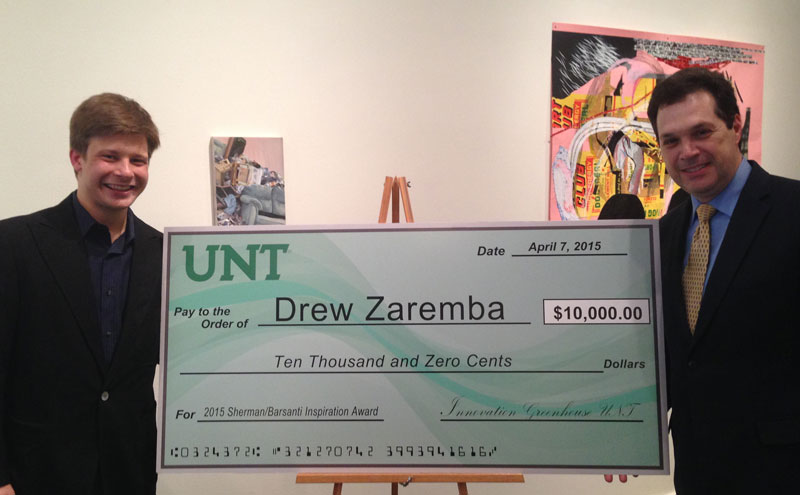
Drew Zaremba (composition student) is the 1st prize recipient of the prestigious canpus-wide Sherman-Barsanti Inspiration Award for his outstanding compositions for orchestra, choir, and big band.
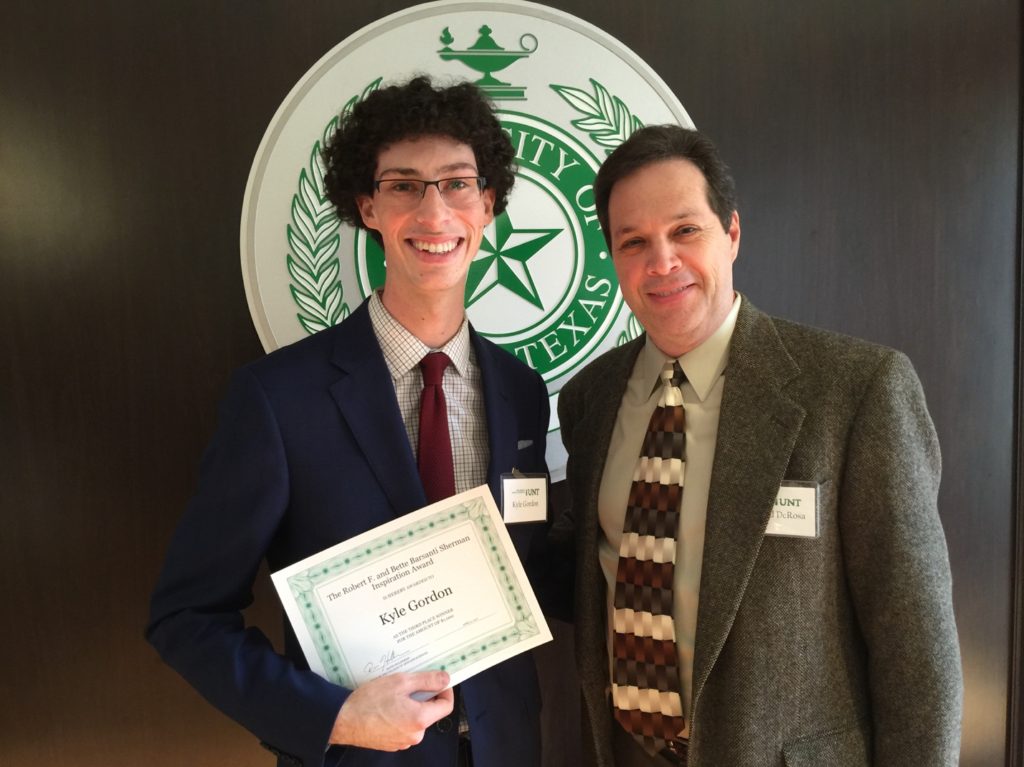
Kyle Gordon (composition student) is the 3rd prize recipient of the prestigious campus-wide Sherman-Barsanti Inspiration Award for his score to Buster Keaton’s silent film “One Week”.
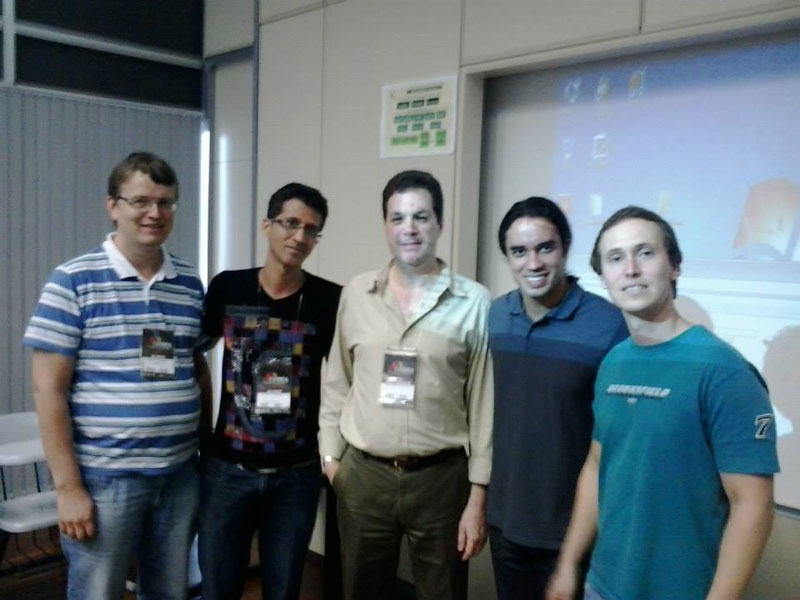
Workshop in Brasilia, Brazil
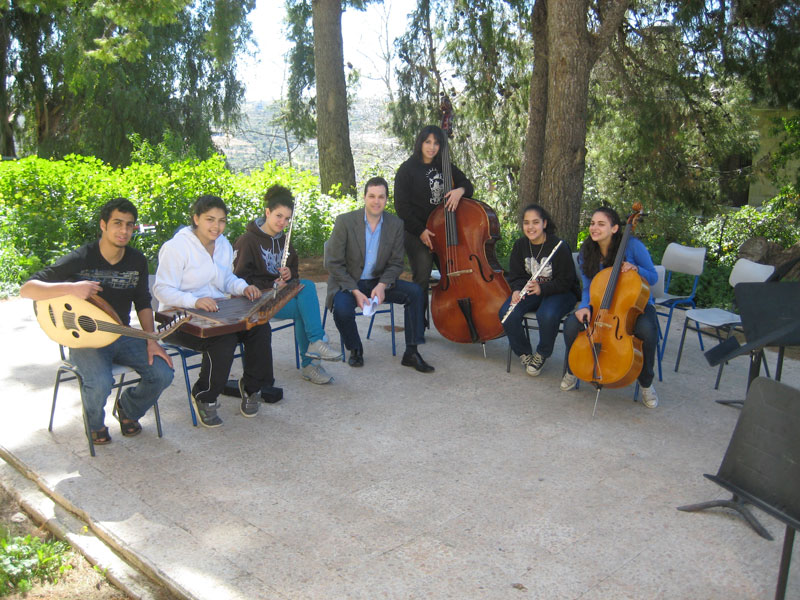
Workshop in Ramallah, Palestine
DeRosa Method Workshops
Professor DeRosa is currently the Director of Jazz Composition and Arranging at the University of North Texas. His professional bio reads like a “who’s who” in the jazz field with arrangements written for some of the top big bands in the world: the Jazz at Lincoln Center Orchestra, the WDR Big Band, the Mel Lewis Orchestra, in addition to writing arrangements for a wide variety of vocalists ranging from Norah Jones, Kurt Elling, Patti Austin, Reneé Fleming, and Susannah McCorkle. Many of his arrangements are published by Sierra Music, Alfred, Barnhouse, J.W. Pepper, and e-Jazz Lines. The ones for public school jazz ensembles are designed for Levels 2, 3, and 4, in addition to more difficult levels for advanced high school and college bands.
Rich DeRosa is the son of Clem DeRosa who was one of the great pioneers in jazz education. As early as 1955, Clem was one of the first educators to create a curriculum for teaching children about America’s musical art form – JAZZ. Clem was able to transform his knowledge and professional experience into simple, effective methods that yielded quick results for the student. His students’ impressive performances were recognized nationally with appearances on the Johnny Carson and Merv Griffin shows in the early 1960s. With other jazz education pioneers such as Stan Kenton, David Baker, Jerry Coker and Russell Garcia, they created jazz education programs for use in high schools and colleges. Clinics, workshops, festivals, and numerous educational institutions have since evolved from these innovations. Students now have many opportunities to learn and perform jazz.
But many of today’s teachers have graduated with a music education degree that excludes any pedagogy for teaching jazz. Their challenges are significant because there were no opportunities to train in this style of music. In particular, there are two most challenging areas: teaching improvisation and managing performance technique within the rhythm section.
Since Clem’s life ended in December of 2011, Rich has carried on his father’s vision and love for music. He has been a powerful advocate for The DeRosa Method: present highly effective yet simple solutions that produce immediate musical results.
In an effort to help today’s music educators as well as their students, Rich DeRosa offers interactive jazz pedagogy workshops for teachers to help them understand the fundamentals of jazz performance and improvisation. Conducting and rehearsal techniques are also discussed.
DeRosa Method General Workshops
Each workshop is designed individually to fit your schedule and your needs, whether involving one school or as part of an adjudication or a festival. Some of the subjects include:
Improvisation – for all levels from absolute beginners to advanced players.
Scat singing – for vocalists and instrumentalists; these syllables are the gateway to jazz interpretation and the concept of swing.
The Rhythm Section – drum set performance, interpreting written drum parts, chord symbols, creating simple voicings, bass lines, etc. Cultivating clarity and a “groove” with the entire rhythm section.
Small group performance – integrating improvisation with arrangements.
Achieving a unified ensemble sound – the importance of tone, balance, and blend.
Choosing appropriate repertoire – select music that fits your band and adjust presently-owned music to fit your players.
Conducting – when to use traditional techniques and when to use jazz techniques.
Effective Rehearsals – ensemble set up, pacing of energy, time management, etc.
Chronology of jazz styles and their interpretation. Iconic jazz artists to engage your students.
Bring Your Questions – practical advice (and solutions) to address your specific problems.
Here is a popular workshop that benefits every musician:
Anyone Can Improvise
This workshop is designed specifically for directors, many of whom have little or no experience with improvisation. You will discover creative, easy ways to get started and receive materials to continue your journey. You will notice immediate results during the session and ultimately enjoy the process. You will have improvised effectively before you leave the workshop! With that knowledge and ability, you can now inform your students and get better results with them as well.
Rich DeRosa’s book, Concepts for Improvisation, deliberately omits the word jazz in its title to affirm that every musician can improvise! His axiom is knowledge instills confidence; confidence replaces fear.
Former Teaching Affiliations Include:
William Paterson University (1999-2010) Tenured Associate Professor – Jazz Arranging.
The Juilliard School (2003-2010) Adjunct Professor – Jazz Arranging for Studio Orchestra.
Manhattan School of Music (1982-1998) Adjunct Professor – Arranging/Improv/Theory.
Princeton University (1983-1985) Director of student jazz ensemble.
Lehman College (1984) Guest Lecturer in residence (jazz drumset performance).
New Jersey City University (1980-1982) Adjunct Professor – drumset, ensembles.

